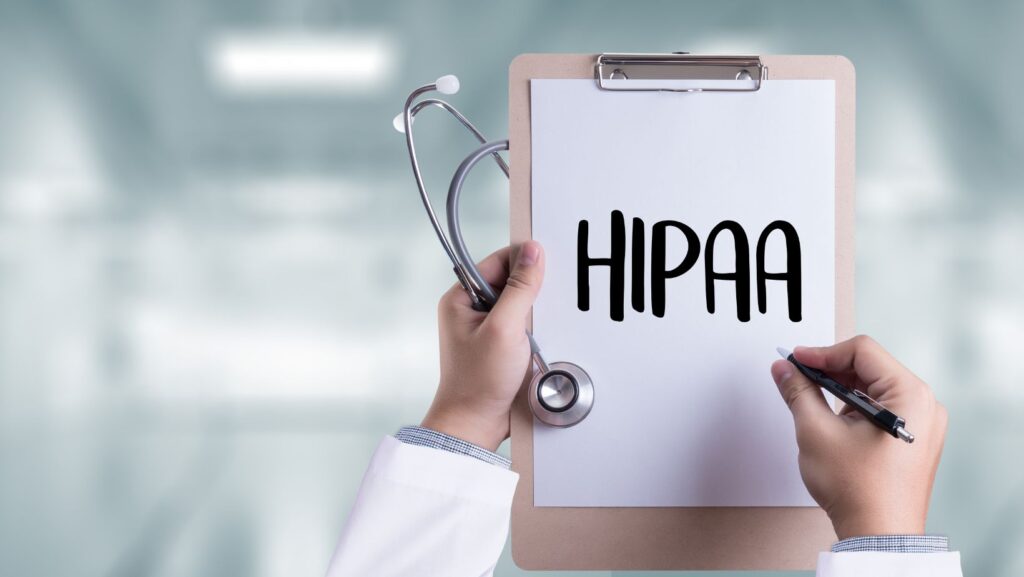Managing sensitive patient data is at the heart of maintaining a robust and compliant healthcare system. In an era defined by the Health Insurance Portability and Accountability Act (HIPAA), healthcare providers must safeguard their patients’ information and adhere to strict data privacy regulations. Secure document destruction is often an overlooked but vital aspect of HIPAA compliance, which speaks to the foundational principle of ‘practicing good data hygiene.’
This extensive guide uncovers the intricate relationship between HIPAA compliance and secure shredding, offering health professionals a treasure trove of insights to fortify their data management practices.
Understanding HIPAA And Secure Shredding
HIPAA was enacted in 1996 to establish national standards for protecting certain health information. It requires healthcare organizations to implement secure means of managing and disposing of protected health information (PHI). Secure shredding, as defined by HIPAA, ensures that paper medical records are destroyed in a completely irreversible manner so that no patient data can be recovered.
Secure shredding is a process that involves the destruction of documents using cross-cut or confetti-cut shredders, which turn papers into hundreds of tiny pieces, making reconstruction virtually impossible. This method ensures that no PHI is exposed through discarded documents.
Benefits Of Secure Shredding For HIPAA Compliance
The benefits of secure shredding are multifaceted and extend beyond mere legal requirement fulfillment.
Data Protection
By shredding documents securely, healthcare institutions protect themselves against data breaches and safeguard their patients’ confidentiality. Data theft is a real and present danger, with the healthcare sector being a prime target due to the high value of health information on the black market.
Legal Compliance
Secure shredding ensures that health offices comply with HIPAA, which is not just a set of guidelines but a law. Compliance is essential to avoid fines and penalties and maintain trust and integrity within the community.
Risk Mitigation
A robust document destruction protocol reduces the risk of unauthorized access and potential malpractice lawsuits. It is a proactive measure to mitigate any risks associated with the improper handling of PHI.
Patient Trust
The security of patient information is critical to maintaining trust and credibility with patients. By implementing secure shredding, healthcare providers demonstrate their commitment to safeguarding sensitive data and instill confidence in their patients.
Implementing Secure Shredding Practices
Putting secure shredding into action involves establishing clear and uncompromising protocols.
Shredding Procedures And Protocols
It is crucial to institute standard operating procedures (SOPs) for document handling and shredding. These SOPs should dictate what documents are to be shredded, how often shredding should occur, and who is responsible for the process.
Document Retention Policies
Health offices must also develop and enforce strict document retention schedules. Retaining documents for the required periods and shredding them promptly once they have lapsed is essential to maintaining HIPAA compliance. These policies should be reviewed regularly to ensure they are up-to-date and reflect any regulation changes.
Employee Training
Employees play a crucial role in ensuring HIPAA compliance, including secure shredding. It is essential to educate them on the importance of document privacy and train them to handle and destroy sensitive information properly. Regular training will help reinforce best practices and keep employees updated on policy changes.
Partnering With A Professional Shredding Service
Outsourcing shredding to a professional service can offer health offices an extra layer of security and convenience. These services specialize in secure document destruction and often provide certification of destruction, giving healthcare providers peace of mind.
Choosing The Right Shredding Service
Outsourcing shredding to a professional service can save time and ensure higher expertise.
Factors To Consider
When selecting a shredding service, consider factors such as the service’s track record, the comprehensiveness of its security measures, and its environmental policies for recycling shredded material.
Cost-Effectiveness And Reliability
While costs play a role, the reliability of the service in consistently and securely destroying documents is paramount. A secure shredding service should offer certifiable destruction services with a detailed audit trail for your records.
Types Of Documents Requiring Secure Shredding
Any document containing patient information qualifies as PHI under HIPAA. This includes, but is not limited to:
- Medical Records include patient charts, lab results, discharge summaries, and other documentation related to patient care.
- Billing Records: Statements, insurance forms, and patient financial information documents.
- Appointment Records: Scheduling information and notes with patient contact details.
- Internal Memos: Any communication containing patient-identifiable information. This includes emails, notes, and handwritten documents.
- Employee Records: Documents with personal information such as social security numbers or addresses.
- Human Resources Files: Personal employee information, including performance evaluations, disciplinary records, and background checks.
- Marketing Materials: Advertising materials that contain customer names or contact information.
It is crucial to securely shred these documents as they can contain sensitive personal information that could lead to identity theft or breach of privacy. By using a reputable shredding service, you can ensure that these documents are destroyed properly and efficiently.
Conclusion
Secure shredding is not just an optional enhancement to data management practices—it is a necessary element of HIPAA compliance for any health office. Implementing secure shredding practices protects patient data, ensures legal compliance, and mitigates risks. Healthcare providers can make informed decisions to safeguard their patients and practice by understanding the importance of secure shredding. Document Destruction of Virginia offers secure shredding services tailored to meet the specific needs of healthcare providers. Contact us today for more information on how we can help your health office stay compliant and protect patient privacy.

